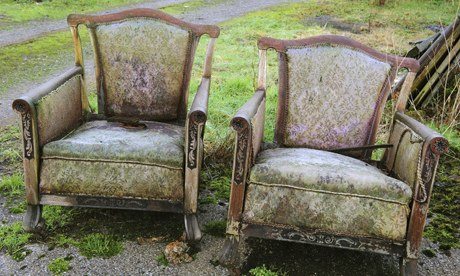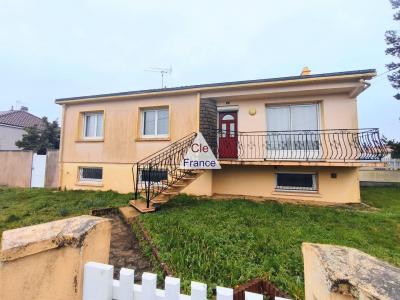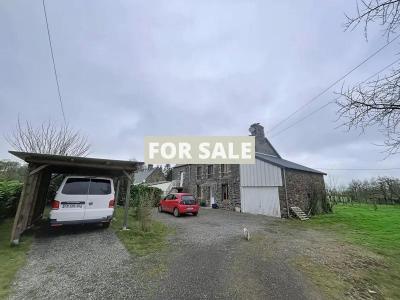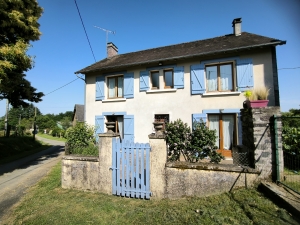Councils in France are the last in line for cashing in on household waste.
Unofficial scrap dealers get richest pickings from items left out for collection, forcing city councils to change strategy

Furniture in good condition is often scavenged before French waste collectors can get to it. Photograph: Alamy.
Every year Paris city council collects 90,000 tonnes in bulky household waste, including some 43,000 sofas, 930 stoves and 4,600 dishwashers. But the return on this service is very poor as unofficial scrap dealing becomes more common. Growing numbers of bounty hunters and semi-professionals are scouring the streets in search of valuable goods, before the council trucks have time to collect them. In France there is no law against picking up waste on the public highway. Anywhere else it counts as theft.
Some categories of inorganic waste, which cannot be picked up by the usual vehicles due to size or weight, have almost completely disappeared, upsetting the business model underpinning waste disposal systems. "Items of furniture in good condition no longer get as far as our trucks," an official at Paris city council explains. "Most of what we collect cannot be used. It's just rubbish."
According to the most recent available figures, 86% of bulky items collected in the city is "mixed waste", which is hard to process. The rest is timber (5%), metal (3%), electrical or electronic waste (2%), rubble (2%) and paper (1%).
In Rennes, Brittany, the council trucks pick up mainly old mattresses, beds and scraps of plywood furniture. In 2012 they collected almost 600 tonnes of large waste, either by appointment, through special neighbourhood schemes or from illegal tips.
"Wooden pallets soon vanish from the roadside, much as metal and cartons," says Fabien Robin, head of waste collection at Rennes metropolitan council. "Timber sells well or can be used for heating. Metal is recovered for resale to scrap dealers."
The council, which set up a system for collecting cardboard once a week at an appointed time, soon realised that this material was popular too. "A large share of the potential tonnage disappeared. Semi-professional scavengers were helping themselves before the contractor got there," Robin explains. As the firm was paid according to the weight it collected, this posed a problem.
At first sight this sudden interest in bulky waste might seem providential. With the drop in the volume of waste collected, local councils should be able to cut the cost of the service. But in practice things are not that simple. In the Rennes metropolitan area a third of all the appointments made to recover large items are fruitless, the relevant goods having already vanished when the vehicle turns up. This obviously entails unwanted expense.
Another problem is that the remaining bulky waste is more difficult to recover or recycle. Lille metropolitan council takes care of waste disposal for the 85 municipalities it comprises. Large items amount to 62,000 tonnes a year. The council has recently introduced a new system to cut costs. "We're gradually replacing monthly door-to-door collections, which have been in force for years, with an appointment-based approach," says Denis Castelain, the metropolitan council's senior vice-president in charge of urban ecology.
The new system, which has been adopted by almost half the municipalities, is producing much better results, particularly in terms of recovery. Up to 40% of bulky waste is either reused or recycled, compared with only 10% before. "Residents who call us must be present when we collect their large items," Castelain adds. "That way, our operators don't go out for nothing. It's also an opportunity for a bit of education, explaining what sort of objects qualify and telling them about existing waste collection centres."
A further advantage to the new approach is that it involves less cleaning up afterwards. With the old system, "there was a steady stream of scavengers who would pick up anything of value", Castelain asserts. "Not only were we left with waste of little value, but above all it was scattered all over the place and we had to tidy up."
Household waste disposal is a complex issue and urban authorities are increasingly looking for new ways of coping with bulky items. Many are keen to encourage the use of waste collection centres, with residents bringing in unwanted goods themselves as and when necessary. This costs half as much as door-to-door collection, even if it does deprive scavengers of their main source of supply.
This article appeared in Guardian Weekly, which incorporates material from Le Monde.
Blog submitted by: Alex at The French Property Network - Cle France.











